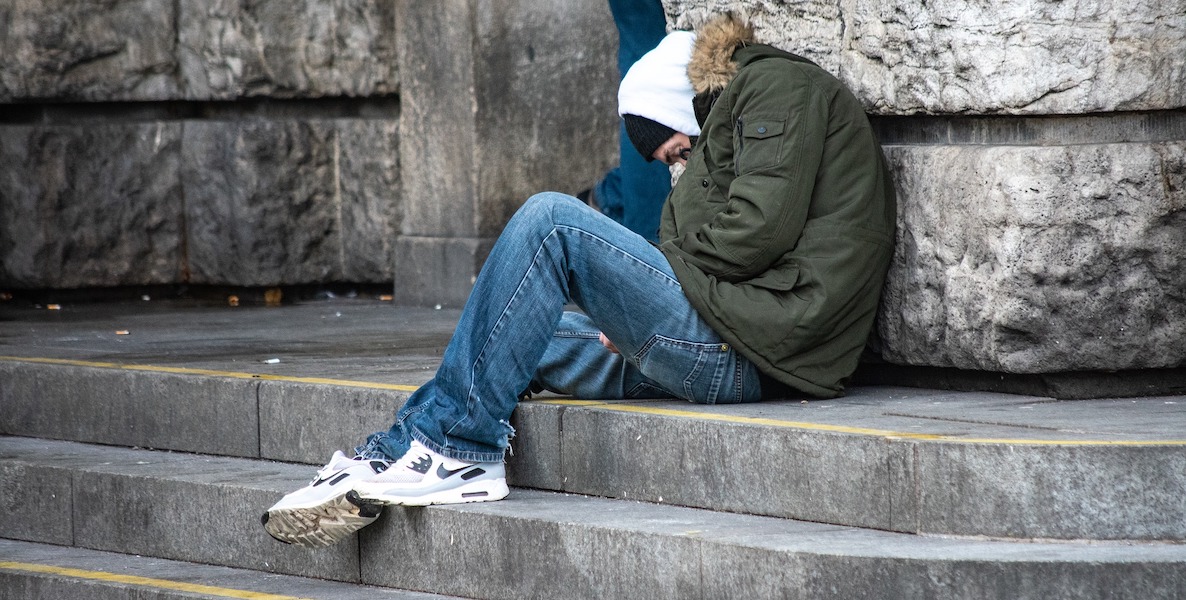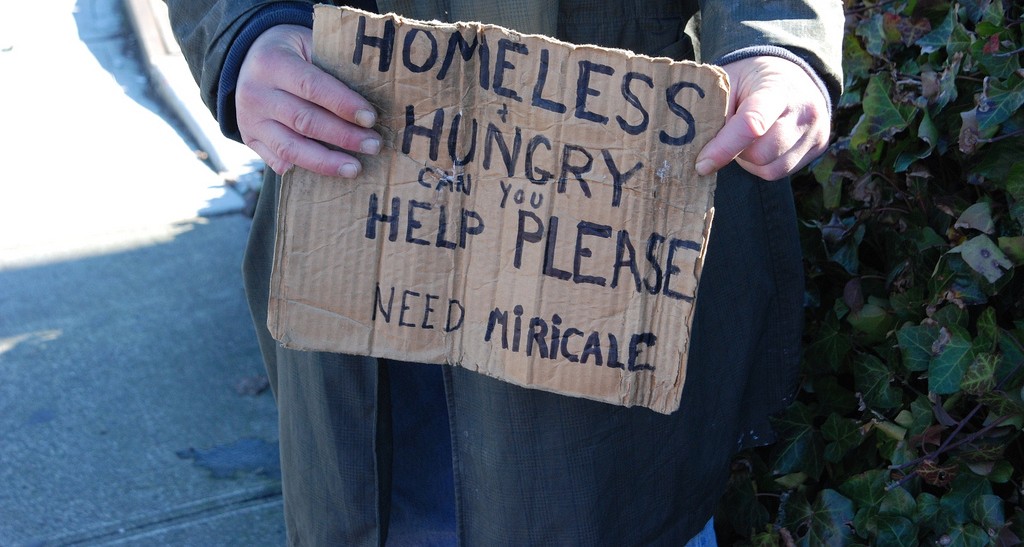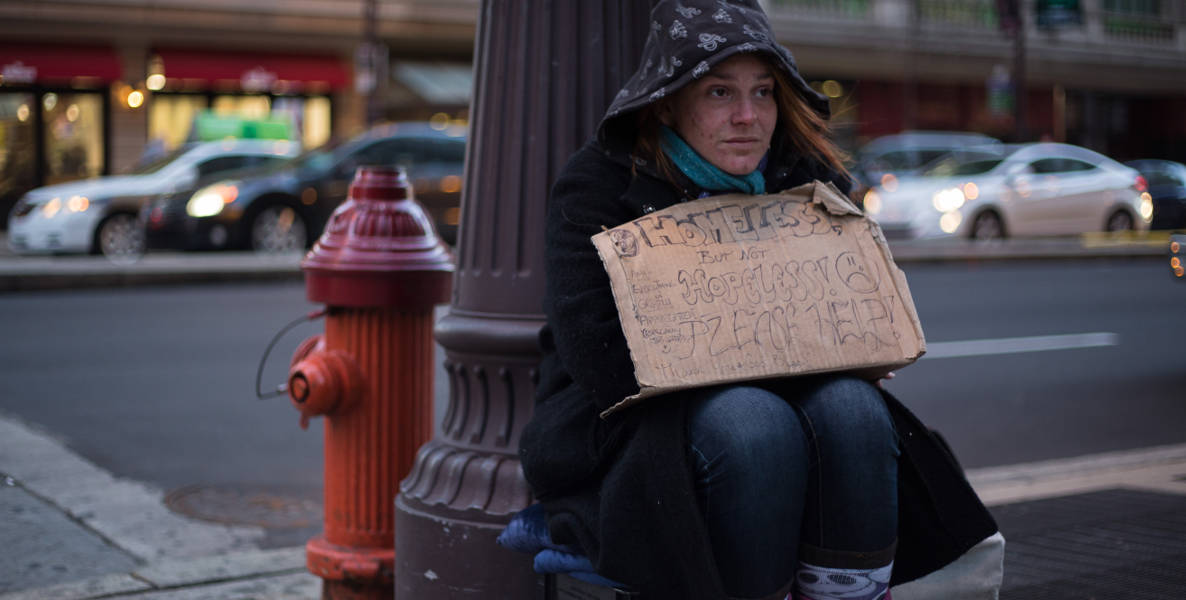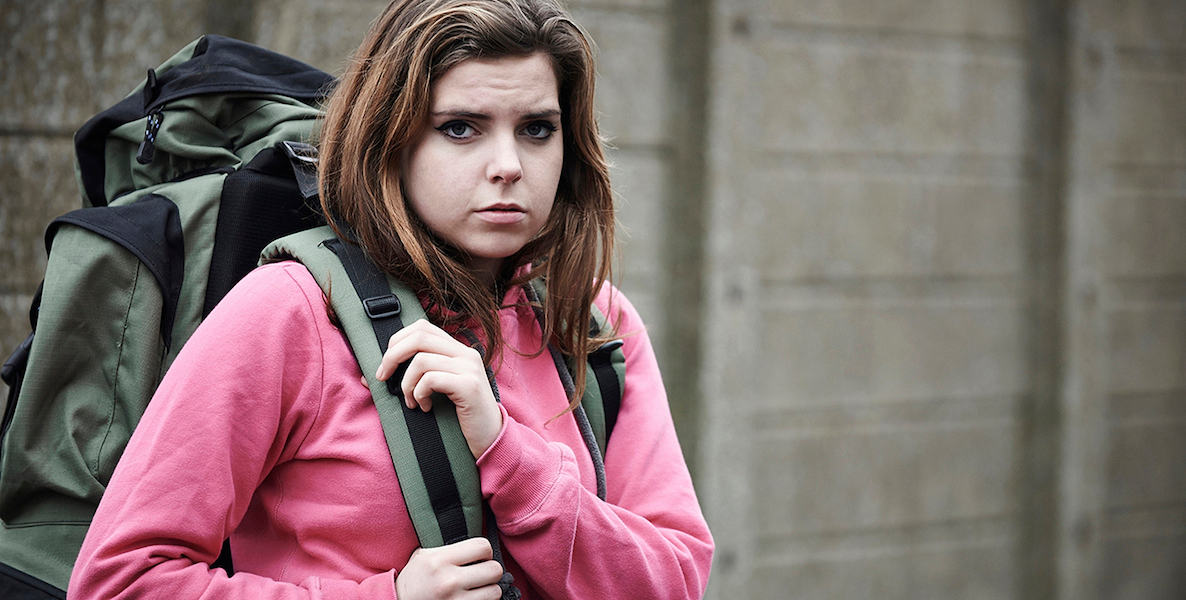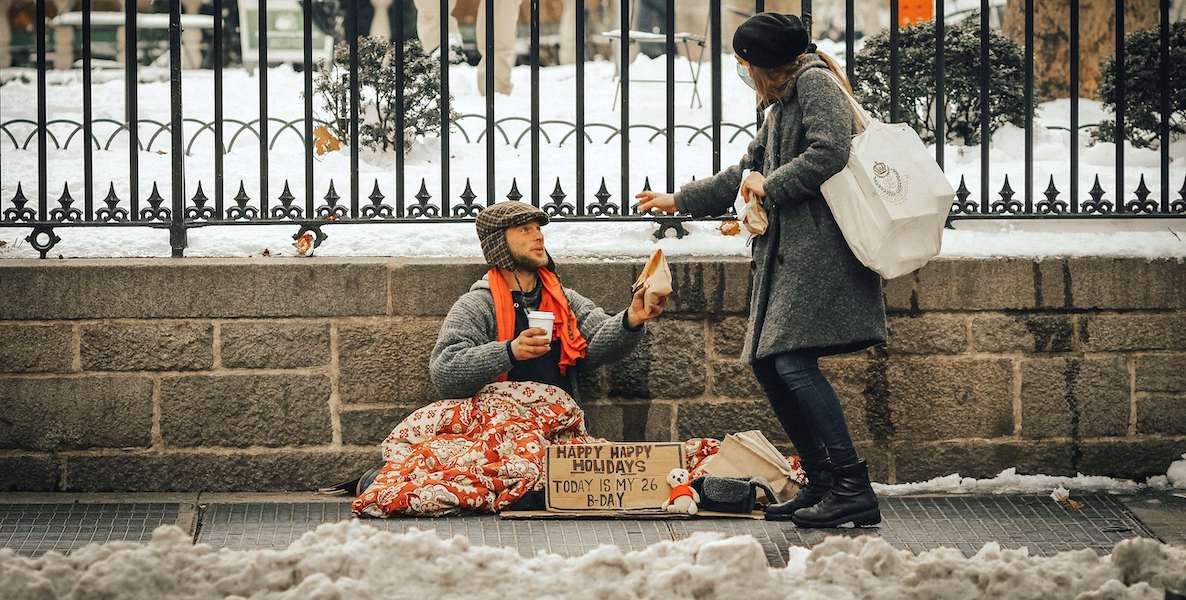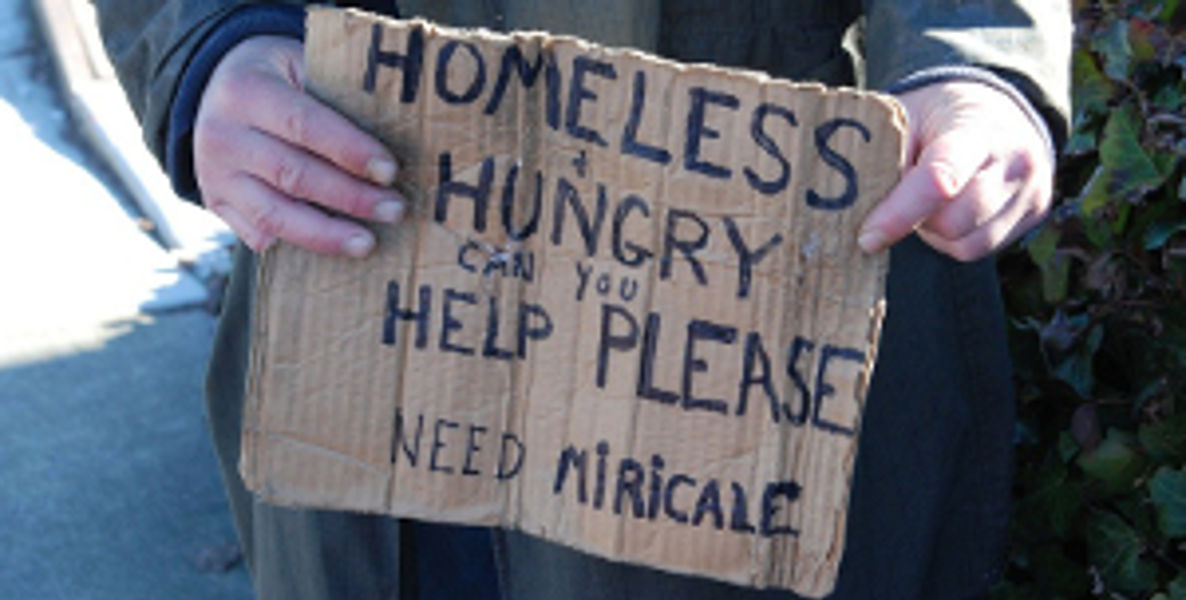Late last year, Philadelphia celebrated an accomplishment years in the making and well-worth applauding: Eliminating veteran homelessness. And Philadelphia is a national model for how to keep track of, and provide services to, adults who chronically live outdoors. But there is an epidemic of homelessness in this city which we have barely even begun to tackle: Teenagers.
Bianca Cruz can tell you about that. She had a childhood of anguish—parents in separate households who emotionally and physically abused her, made worse when she came out as a lesbian as a teenager. She ran away at 16, couch-surfing at friends’ houses. At 18, she attempted suicide. She had no one. She had nowhere to go. She had no hope. Cruz was headed towards just one thing: The streets, where she says she knows she would have ended up on drugs.
Instead, Cruz found her way to Covenant House Pennsylvania, the city’s biggest shelter for older adolescents who have run away, been victims of abuse, been sex trafficked or abandoned. The shelter kept her safe, and warm, and well-fed, and offered an array of social services. But at its core, Cruz realizes now, it gave her something far greater: A family. Now 26, Cruz has spent much of the last eight years in and out of Covenant House—as a resident in its shelter and its transitional housing, and as a volunteer. She has had setbacks, made poor decisions that have cost her. But Covenant House had her back. It’s the reason she is now stable and about to start college in the fall.
“At Covenant House are the only people who have ever cared for me and had my best interests in mind,” Cruz says. “That’s what family is.”
A branch of a 45-year-old national organization, Covenant House Pennsylvania opened in 1999. It now serves 500 adolescents a year. It turns away another 546 because it doesn’t have the room for them. The teens who walk in to Covenant House are the ones lucky enough to know where to go, and desperate enough to ask for help. But they are likely just a fraction of the kids out there who are effectively homeless, living—like Cruz did—on couches, or spending the night on busses to avoid admitting they have no place to go. “These are teenagers,” says Executive Director John Ducoff. “They work incredibly hard to not be seen as homeless.”
Last year, Covenant House served 512 youth. It turned away another 546—including 41 pregnant women, like the 18-year-old who walked in eight months pregnant and asked for a place to stay. Ducoff gave her a sandwich and a drink. And then he told her they couldn’t help her. “She had the courage to ask for help, but I couldn’t give it,” he says.
Covenant House runs two different programs. In Germantown, the emergency shelter is open 24/7, with 51 beds—for 28 young men and 23 young women, including four mothers with infants and one who is pregnant. They can stay for up to 60 days, during which they get a full spectrum of services—medical care from an on-site CHOP clinic, psychiatric care, substance abuse counseling, education, vocational counseling, housing assistance and spiritual counseling if they want it.
Most of the youth leave the shelter after reconciling with family, or finding new family members willing to take them in. Some, like Cruz, leave and come back, even several times. “We’re a choice program,” says John Ducoff, executive director. “We don’t lock the doors. You’ve got to want to be here.”
Across town in Kensington, Covenant House runs Rites of Passage, an apartment building for 20 young people transitioning to living on their own. Open to those who have jobs and have saved $300, Rites of Passage helps kids learn the skills they need to live on their own—cooking, keeping a house, financial management—while helping them to save enough money to get their own place.
Although three programs in Philly serve homeless youth, the other two—Youth Services, Inc., and Pathways PA—have 25 beds total, for kids aged 13 to 17. (Pathways also has a transitional living program for several pregnant teens and young mothers up to age 21.) Covenant House is the only place that welcomes older adolescents, up to age 24, who need housing and help, but don’t feel welcome at adult shelters. “When you have programs that are designed for and appropriate for adults, they are not appropriate for youth,” Ducoff says. “We’re looking for a different set of outcomes. If we don’t intervene now, we’ll create the next generation of homeless adults. If we do, we can create the next generations of artists, and writers, and doctors and lawyers and nurses.”
Covenant House sits at the intersection of the homelessness and child welfare systems. “We’re the safety net for the safety net,” Ducoff notes. About 40 percent of its residents every year have a history of foster care; half were reunited (unsuccessfully) with their families, and the other half aged out of the system at 18, with no job prospects and no place to live. More than 70 percent have experienced abuse, physical or sexual.
And around 20 percent of Covenant House residents are victims of sex trafficking. That’s why, in Philly, Covenant House leads the Philadelphia Anti-Trafficking Coalition, a grouping of different agencies working to raise awareness of, and put a stop to, sex trafficking. “People still often don’t see the connection,” says Ducoff. “But the victims who traffickers target are runaway youth. Those are our kids.”
Covenant House’s open door policy means it sees all kids, from all different situations. Some have been living on the streets, and make their way to Germantown after meeting outreach workers who search for homeless youth several nights a week, connecting with them, giving them sandwiches and urging them to come to the shelter. Others hear about it from school counselors, or other kids, or service agencies. Many of the residents are LGBTQ, who represent a disproportionate number of homeless youth.
“These kids have overcome more tragedy in their 18 years than I will see in my whole life, and the world has greeted them with violence and apathy,” says Ducoff. “If that’s what the world tells you, you believe that’s what you deserve. Our work is about bringing young people in and being kind to them and being there for them. That’s what family does.”
Covenant House is hope in the midst of horror, for those like Bianca Cruz. But it’s the ones turned away that keep Ducoff and his staff up at night, like the 18-year-old who walked in crying, and eight months pregnant, a couple weeks ago. She asked for a place to stay. Ducoff took her into the cafeteria, calmed her down, gave her a sandwich and something to drink. And then he told her that, like 41 other homeless mothers-to-be this year, they couldn’t help her. “She had the courage to ask for help, but I couldn’t give it,” Ducoff says. “I referred her to an adult shelter, but she’s not going to go. When I think about that young mother and her baby, that’s two generations lost.”
Ducoff came to Covenant House Philly two years ago from the organization’s New York headquarters for what was supposed to be a temporary assignment, filling in while they searched for a new director. A lawyer by training, Ducoff early in his corporate career took on pro bono child welfare cases, including that of the Jacksons, the Collingswood family of four boys who were starved and beaten for years by their adoptive parents. Ultimately, he left his firm to work with New Jersey’s Office of the Child Advocate, then followed its founder, Kevin Ryan, to the state’s child welfare system, where as deputy commissioner for child welfare reform, he led a series of systemic changes. Later, he followed Ryan again, to Covenant House.
“If we don’t intervene now, we’ll create the next generation of homeless adults,” Ducoff says. “If we do, we can create the next generations of artists, and writers, and doctors and lawyers and nurses.”
Five years later, he was in Philly, when he noticed a young man waiting outside the shelter’s clinic wearing a t-shirt from Bensalem High School—Ducoff’s alma mater. He sat down to talk to him. It turns out, the two grew up a few blocks (and decades) apart from each other. “The only thing separating us—besides 30 years—was that I had family, and he didn’t,” Ducoff says.
That stuck with him, and he asked to stay on. His main job is to raise money and Covenant House’s profile. But Ducoff makes the 90 minute trip to Germantown from his home in central Jersey every day because of the kids he meets, those who stay and those who don’t. “My wife always says she knows I must love my job because of how little I complain about the commute,” he notes. (His work is also a family affair: His mother helps out by donating hand-made felt blankets that residents take with them when they leave.)
Covenant House’s $4.5 million annual budget is 99 percent funded through private and corporate philanthropy. (It gets $50,000 a year from the city, for street outreach.) Some of that is in $5 monthly donations; some comes from annual fundraisers like Sleep Out, in which local professionals are asked to sleep outside in a cardboard box and a sleeping bag for one night to raise money for Covenant House. This is deliberate. “We want to be open at all times, and for all kids,” Ducoff says. “Most government agencies have funding streams, which are targeted to specific groups. We welcome every kid in, regardless of where they’ve been.”
It would take another several million dollars a year to double Covenant House’s capacity in Philadelphia, to provide a bed for every kid who walks in. But Ducoff has an immediate plan to open another 20 beds, if he can raise the funds. The top floor of the building in Germantown has bedrooms currently being used as administrative offices. Ducoff says they can easily be converted into bedrooms for about $30,000. He needs office space for about 20 workers, who don’t need to be onsite. And Ducoff says he needs another $400,000 a year to staff, feed and serve the additional residents. Even this will only put a dent in the problem, but it’s a massive dent for the several dozen kids who will get a chance at Covenant House.
“This is not only a matter of doing what’s right, it’s also taking advantage of a real opportunity,” says Ducoff. “These kids, when you see all they have overcome, it’s a different kind of credential. If I give you a 19-year-old who has overcome homelessness, they can do anything you train them to do. If we’re going to pull ourselves out of the situation we’re in, and become what we should be as a city, one way is by taking advantage of the natural strength of these young people. They have an amazing amount of grit and resilience.”
Correction: A previous version of this article said Covenant House provided the only shelter for older adolescents. Pathways PA also offers services to pregnant adolescents and young mothers, up to age 21.
Photo Header: Flickr/U.S. Department of Agriculture




